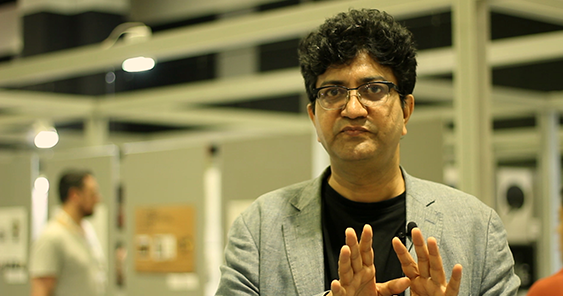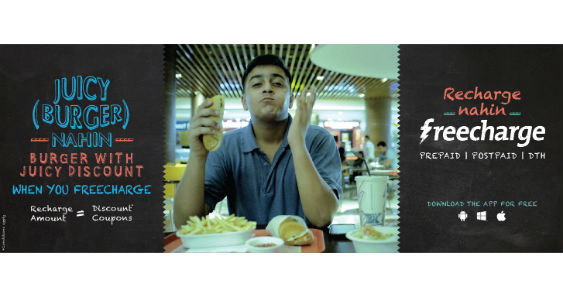SINGAPORE — Kicking off this year’s amazing line up of educational and inspiring sessions in the Spikes Asia Festival of Creativity is McCann Worldgroup’s Chairman and CEO, Harris Diamond and McCann Worldgroup Asia-Pacific Chairman, Prasoon Joshi. They tackled a global phenomenon that’s penetrating the world right now—localization. What does this mean? How can marketers and brands engage consumers who are getting to know more about their culture through the internet and social media? We discuss the matter further with Prasoon:
You talked about the rise of local sentiments especially in Southeast Asia because social media. The same thing is happening right now in the Philippines. Did you expect this trend to become the outcome of connectivity?
Yes. If you ask me, I expected this. I always felt that whenever I visited my friends in various other countries, I felt they’re more protective of their culture. And I knew that the moment the world opens up, people will start feeling very anxious about their own identity and there are also economic reasons for it. So all combined, I think people will rise for their own identity and that is where, I think, the world is right now.
Do you think this kind of phenomenon benefits the marketing and brand industry?
It doesn’t kill the market, it just restructures the market. You know, if your definition of market is only multinational then of course it makes a little difference. But if your definition is that is a mix of things, have people stopped consuming? No. People will consume. It’s just that the reasons for their consumption have changed. So you have to see, what is their motivation? What is driving them? It is just their aspirations for which they will go and adopt a product or is it something else? The motivations will change, the emotional reasons will change and that’s what is happening. Is it good or bad? No, it’s the same for the market but the market has to take cognizance of it. If they don’t, then it is bad for the market.
You mentioned that with the rise of social media, in just one click anything local can go global and anything global can go local. Do you advice brands to be more careful?
Yes. It’s the time that brands have to be very careful. They have to be careful and they can’t be casual about this. They have to know that anything in any part of the world that they’re doing is going to impact the business in any part of the world. Gone are the days that you did something in Indonesia, and something else in Vietnam, and something else in United States. Today, within a second, what you did in one country is part of the overall central consciousness. So, your brand has a central nervous system which is there today and all of us are connected to that.
Would you say that it is more difficult now that there are more layers of customization?
Yes it is. It is more complex. Gone are the days that you create something and you bundle something together, and then you just went and adapt that vision that worked in other countries and you will live with that. No. You can’t anymore. Because people can’t take it that you do not treat them especially. They have not be given special attention, they have not been understood. So, I think the nuance is the name of the game. You have to be nuanced.
You talked about how the truth makes people feel insecure. The fear of what is alien, economic fear and all of that. How do brands deal with that?
I think the best thing to do is to be honest, to face it, that this is the fear people have. And the moment they accept it, honestly, you see that the people are not against multinationals. People are not against any kind of brand. People are not into those games. Consumers are looking for good products. And consumers are looking for respect and understanding. That’s all the consumers are looking for. If you fail to understand the consumer, if you fail to understand their motivations, you definitely will be in trouble. So yes you can succeed. But provided you are not doing lip service to understand. Not just by statistics. Go and see what their motivation and dreams are. Realities have to be encountered. What the filmmakers do, what literature does, what poetry does, what music does. Advertising has to do that.
You were also saying that in the modern world today, they gave everyone the idea of success but they lack compassion. What do you mean by that?
What happens is you become selfish. The idea of success, the idea of individualism which came from the Western world also has made people, not that that was the intent, selfish. That means myself and not for others. In the Eastern world, we live for others. We live for our parents, we live for our siblings, we bother about other people. For example, what’s used to be considered ‘unfortunate’ is now a ‘loser’. Before, if there’s somebody who couldn’t make it in life, you call him unfortunate. Now you call him a loser. When you say unfortunate, it means that fate has a hand in that, you seem more compassionate.
So you’re basically saying that brands should be more compassionate?
Yes. They have to be! Anything that is not compassionate should not exist. We have to be compassionate. We are all about living together. We are not about pulling each other down and outshining each other. I think what happens is that sometimes you fear a brand because it is talking so cutting edge and you feel ‘God, I won’t be able to ever do it’. And that frightens you and you go run to your culture. You run to your mother’s lap and you say, “Hide me please, I can’t face this world.” But that’s also happening, they are intimidating.










